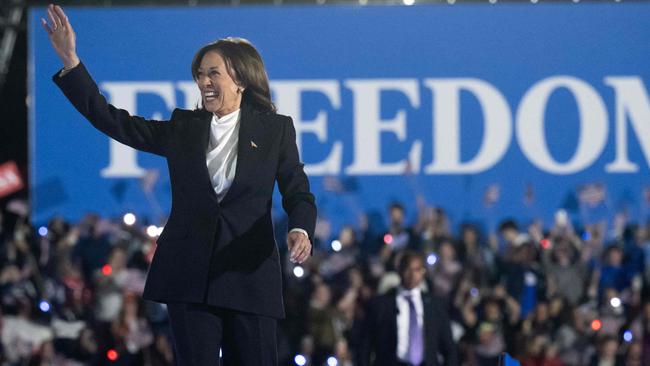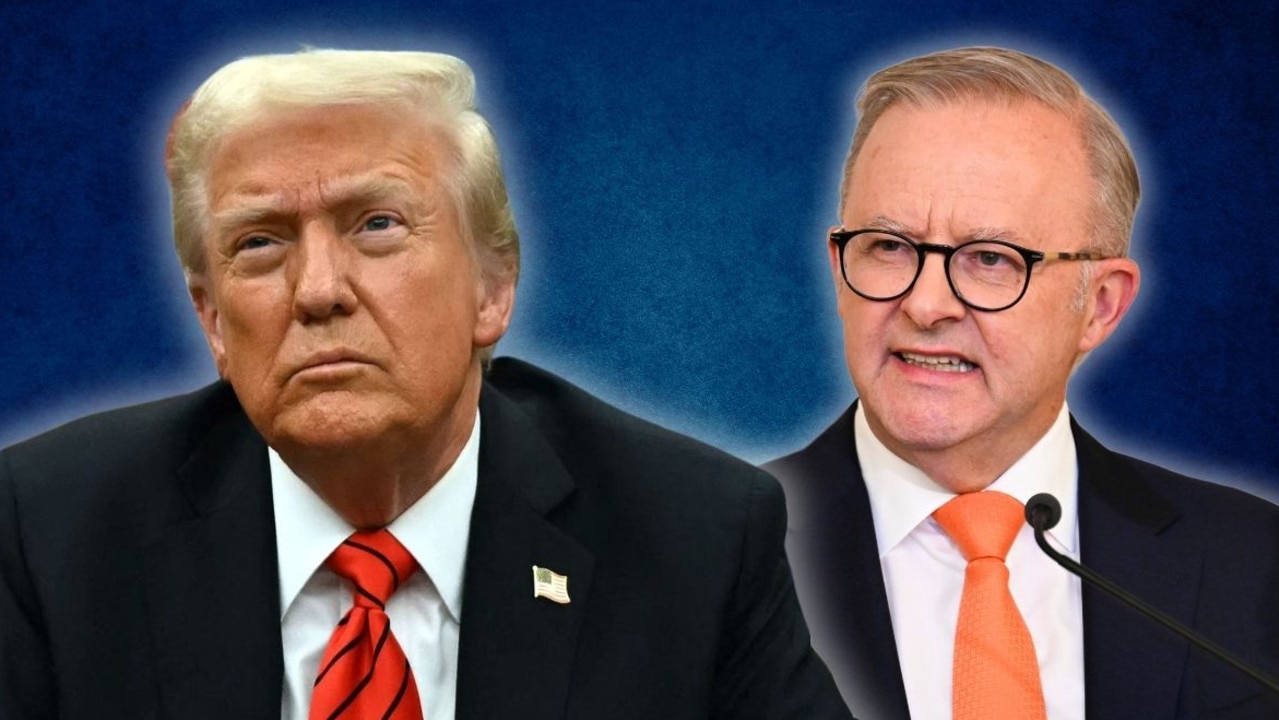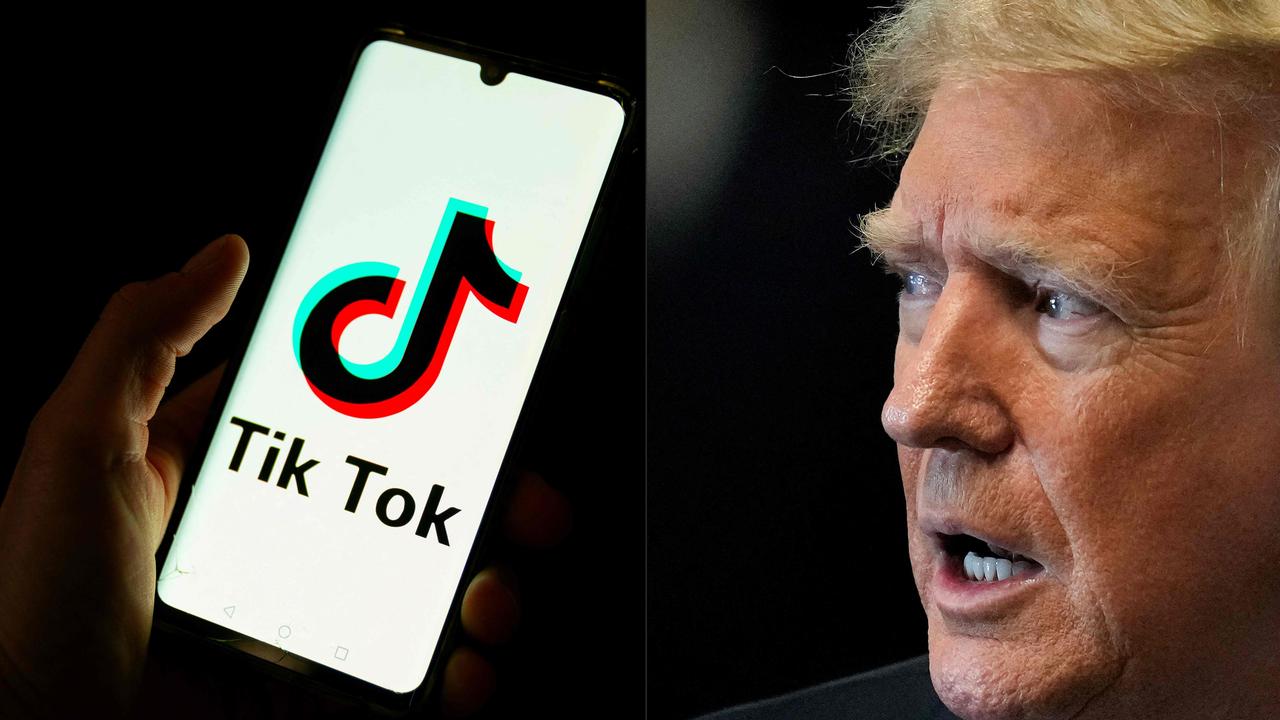Donald Trump v Kamala Harris: How US Election will affect Australia
The world’s future deeply hinges upon the US Election result, with Donald Trump and Kamala Harris’ policies also set to have profound effects on Australia.
US Election
Don't miss out on the headlines from US Election. Followed categories will be added to My News.
Who sits in the Oval Office matters deeply to Australia and the world.
And rarely have Americans faced such a stark choice – re-electing former president Donald Trump or promoting Vice President Kamala Harris – with such serious consequences for the allies and enemies of the world’s foremost superpower.
This is what is at stake in next week’s presidential election for those of us without a vote.
AUSTRALIA
AUKUS
TRUMP
Mr Trump’s silence on the defence pact – under which Australia will buy at least three nuclear submarines from the US in the 2030s – has Canberra on edge.
And while some of his national security advisers are strong advocates of AUKUS, others are sceptical of giving away the Apex predator of the US Navy while it is short of submarines and struggling to ease long production delays.
Abe Denmark, who was until recently the Pentagon official in charge of implementing the pact, believes it would be up for debate under Mr Trump but says he is confident it would “emerge relatively unchanged” given its strategic necessity in deterring China.
Australia’s former ambassador to the US Arthur Sinodinos suggests he could renegotiate the submarine sale to extract more cash from Australia for America’s submarine industrial base.
HARRIS
AUKUS is one of the Biden-Harris administration’s key foreign policy breakthroughs, so the Vice President would have no interest in derailing it.
Kim Beazley, another former Australian ambassador to the US, says debates will nonetheless continue in Washington DC over the timing of the submarine sale and whether Australia is complying with America’s expectations to become a nuclear navy.
Some congressional Republicans have been vocal in pushing the current administration to accelerate submarine production by investing in the industrial base.
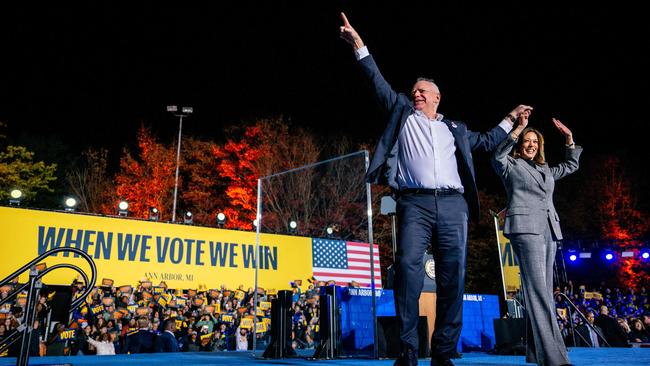
THE ECONOMY
TRUMP
The Albanese government and Australian business leaders have been warning against Mr Trump’s plan to slap all imports to the US with a minimum 10 per cent tariff, a move that would harm our exporters and breach our free trade agreement.
In his first term, Australia managed to dodge steel and aluminium tariffs. But Mr Trump is showing no signs of sparing allies now, saying they “treat us actually worse than our so-called enemies”.
Even if he focuses his tariffs on China, that could spark a trade war with damaging consequences for Australia. Economists also worry it would reignite inflation, right at the moment that brutal cost of living increases have largely been reined in around the world.
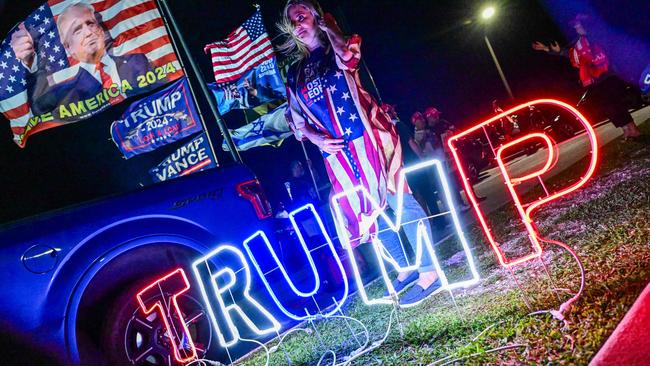
HARRIS
While Ms Harris is not proposing sweeping tariffs, Mr Sinodinos warns trade has been “the Achilles heel” of the Biden-Harris administration.
It failed to provide greater market access for its Indo-Pacific partners, kowtowing to the antagonism fuelled by Mr Trump over the impact of trade deals on American workers.
Australia’s ambassador to the US Kevin Rudd has put this on the agenda for whoever wins the election, although Ms Harris appears unlikely to change course from Mr Biden.
She would likely be a firm supporter of expanding the President’s initiative to make co-operation on clean energy and critical minerals a pillar of the US-Australia alliance.
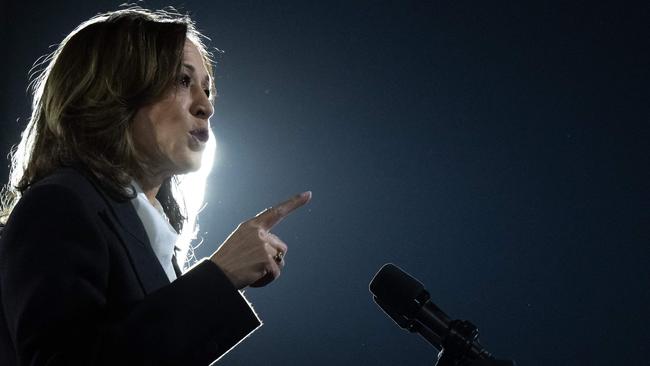
DIPLOMATIC RELATIONS
TRUMP
In March, having been told about Dr Rudd’s criticism of him as “a traitor to the West”, Mr Trump threatened his job by saying: “If he’s at all hostile, he will not be there long.”
The Albanese government has backed the former prime minister – who has been diligently building bridges with Mr Trump’s advisers – to stay in the top diplomatic job.
While Dr Rudd is highly regarded across the American political divide as an expert on China, he would be in an awkward position to say the least.
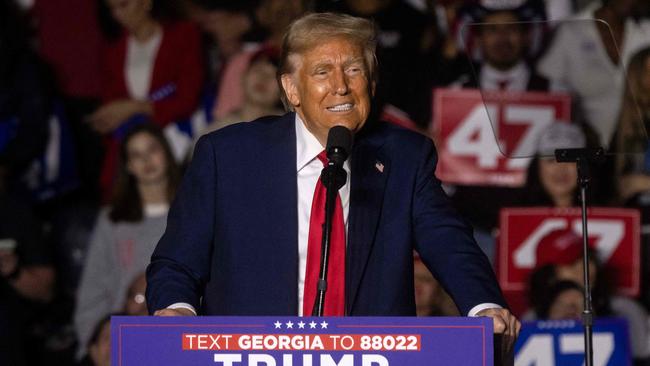
HARRIS
Prime Minister Anthony Albanese would obviously be far more comfortable dealing with a President Harris, given their similar left-leaning views on policy issues like climate change.
He has described her as an “outstanding candidate” and a “good friend of Australia”. Indeed, a present she gave him last year – framed AC/DC and Bruce Springsteen records with the Sydney and Washington DC skylines cut into the vinyl – now hangs in The Lodge.
Should Peter Dutton become the prime minister next year, he and Ms Harris would likely still find common ground on combating China’s aggression, including through AUKUS.
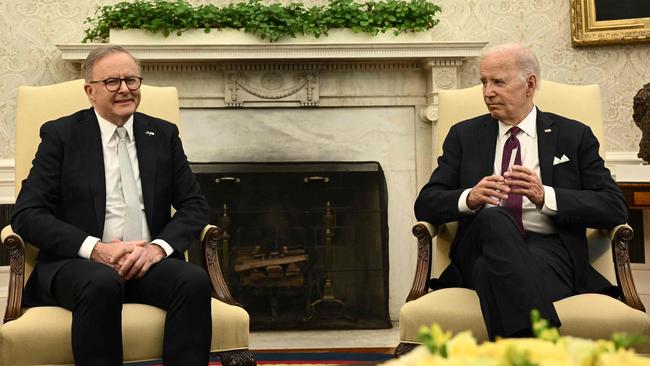
THE WORLD
UKRAINE
TRUMP
The war would end within 24 hours under Mr Trump – or so he has promised. That has Ukrainian President Volodymyr Zelenskyy and his Western allies fearing the Republican would force him to give up territory to Russia and take away American military support.
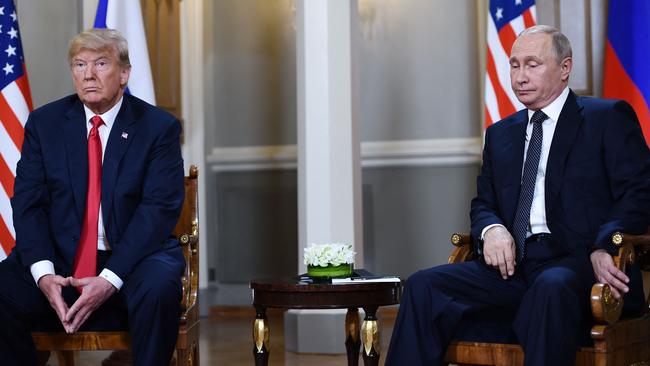
HARRIS
One of Mr Biden’s signature achievements is rallying America’s democratic allies to defend Ukraine. Ms Harris has been similarly committed to the cause, while claiming Mr Trump would have Russian President Vladimir Putin “sitting in Kyiv”.
Even so, she would be confronted with the question of how Ukraine can win a war that will have lasted for almost three years by her inauguration.
The Biden-Harris administration struggled to push more military support through Congress this year. At the same time, they have been criticised for dithering on providing Ukraine with more aggressive military hardware and strategic support to force Russia back.
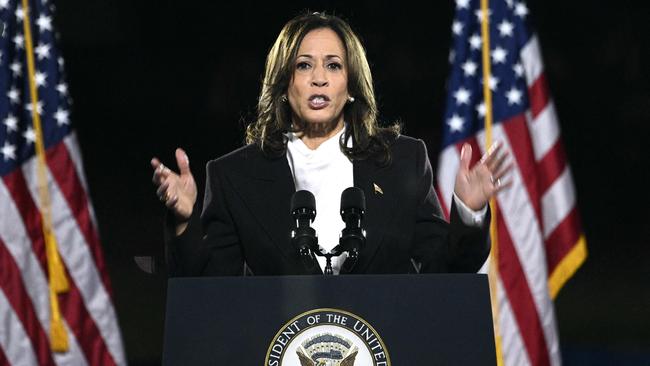
THE MIDDLE EAST
TRUMP
The former president has long styled himself as a loyal partner for Israel, calling himself the country’s “protector”. The Abraham Accords – negotiated under his administration – were a major leap forward in the Middle East by normalising Israel’s relations with Arab neighbours.
That said, the deal-making Mr Trump would still have a hard time ending the current conflict, and his support for Israel has come with regular calls for an end to the war in Gaza, saying it is “a bad image”.
He is close to Israeli Prime Minister Benjamin Netanyahu, although their relationship has been up-and-down, and would face an Iranian regime that is determined to assassinate him.
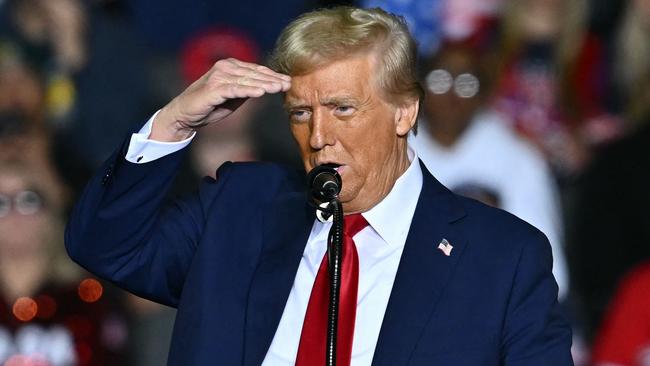
HARRIS
Ms Harris has more sharply condemned Israel’s handling of the war in Gaza than Mr Biden, although she has refused to propose an alternative approach – such as restricting the supply of American weapons – amid intense pressure from Arab Americans.
Mr Netanyahu, having recently unleashed a new offensive against Hezbollah in Lebanon, appears to be hoping to deal with a more friendly Mr Trump.
If Ms Harris wins, she will be faced with the same thorny predicament as Mr Biden: how to plot a pathway to peace without using leverage that would break the US-Israel relationship.
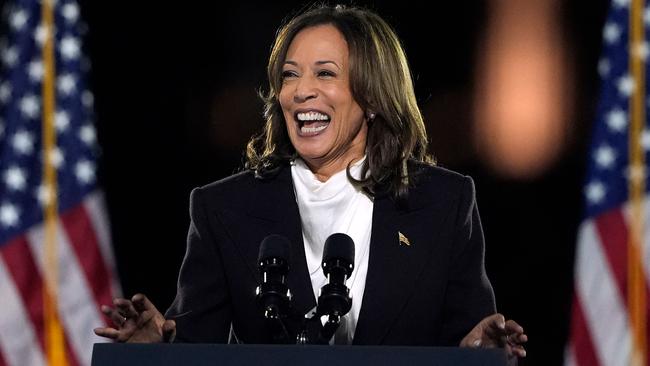
CHINA
TRUMP
Mr Trump has spoken glowingly of Chinese President Xi Jinping, but he would put their “very strong relationship” to the test with his tariff plans that could ignite another trade war.
And the former president has suggested he would go further by using the tariffs as part of a high-stakes negotiation over any Chinese move to reclaim Taiwan, even telling the Wall Street Journal he could shut down trade with China altogether.
Asked if he would use military force to stop a blockade of Taiwan, Mr Trump said: “I wouldn’t have to, because he respects me and he knows I’m f***ing crazy.”
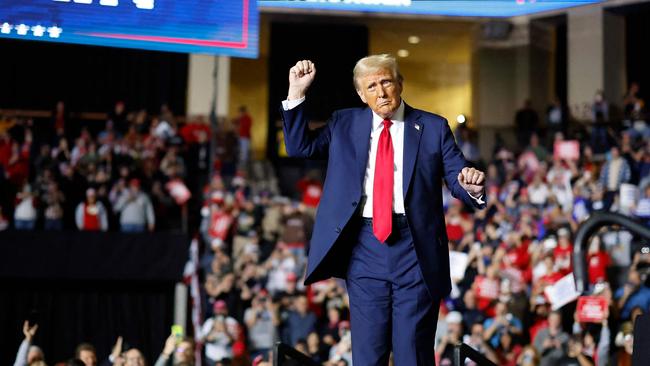
HARRIS
While the Vice President surprised experts by naming Iran rather than China as America’s greatest adversary during a recent interview, she has otherwise given no indication of deviating from Mr Biden’s deliberate approach to winning the strategic competition.
Lowy Institute senior fellow Richard McGregor argues Ms Harris is “a blank slate on China policy”, which has been amplified by the lack of attention on China during the campaign.
But she has strong relationships with Indo-Pacific leaders and has approached China’s international law breaches – including in the South China Sea – with her prosecutorial eye.
More Coverage
